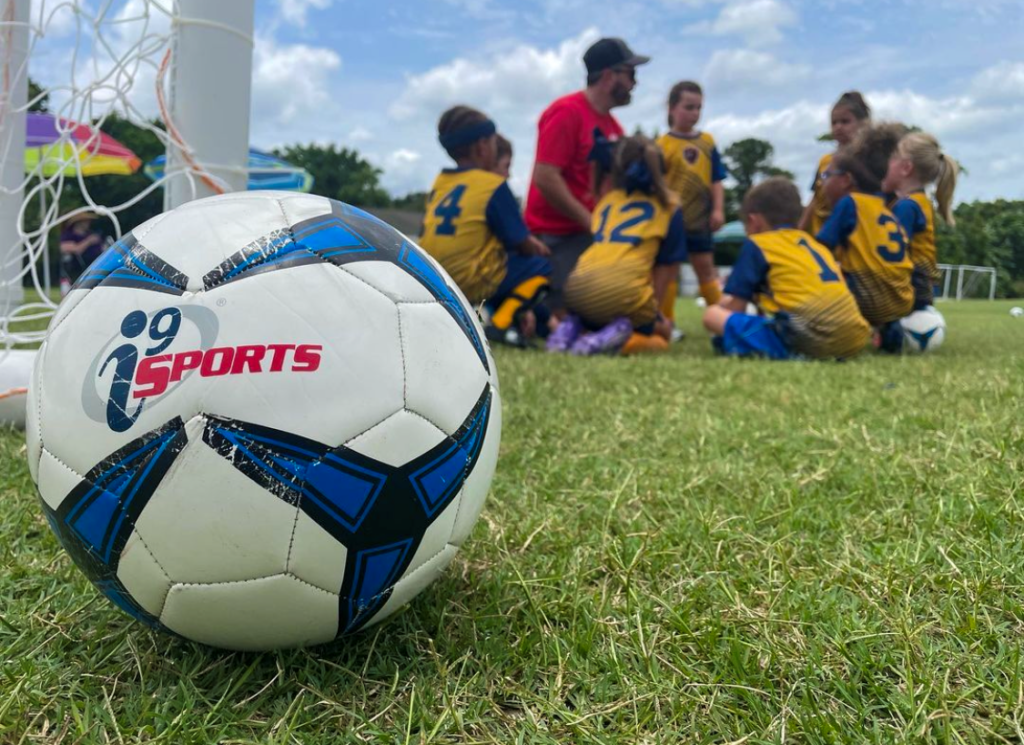Is Soccer Hard For Kids to Learn?
Soccer is the fourth most popular sport in the United States. Professional soccer, or what you see on TV being played at the World Cup, is actually a very complex game.
It requires stamina since soccer players run 7-10 miles per game, as well as precise tactical skills and an understanding of complex scenarios like off-sides and reading the defense.
Soccer is a great introduction to team sports for young children. In fact, it’s often one of the first sports a child can choose to play.
Tips for Starting Kids in Soccer
How soccer is played depends on the age group involved. Children play differently than teens and adults, with the game growing in complexity, positions, field size, and rules over time. With this progression, children can become skilled soccer players, confident in their sport.
1. Have the Right Equipment for Kids Soccer
Soccer requires some specialized equipment, including cleats and shin guards. There are different types of soccer balls available, so it’s important to select the one that is best suited for your level of play.
Choose the ball that is the right size and weight for your age. Make sure you have all the necessary gear before starting to play.
2. Find a Good Beginner Soccer Program for Kids
One of the best ways to learn a new sport is to find a program that is going to offer quality instruction, with age-appropriate programming, in a safe and fun environment.
Coaches can teach you the basics of the sport and help you to improve your skills. To supplement, you can also try watching videos or reading articles online about the sport. This will help you understand the basics of the sport, and how to play it properly.
3. Let Kids Move at Their Own Pace as They Learn Soccer
It’s important not to compare your abilities to other players’ skills. It’s okay to move slowly to master the proper technique before increasing speed. Ask yourself what you want to get out of soccer and if you are having fun. If you are working to achieve your goals and are having fun, development will come.
4. Make Sure New Soccer Players Stay Hydrated
It is also important to stay hydrated when practicing or playing a sport. Dehydration can cause a player to feel tired and fatigued, which can affect performance. Be sure you drink plenty of water before, during, and after you practice or play in a game.
5. Help Kids Practice Patience and Perseverance While Learning Soccer
To learn a sport, it is important to have patience and perseverance. You will also need to have a good attitude, as this will help you to stay motivated when things get tough. A good soccer player needs to be willing to make mistakes, and to learn from them.
If you follow these tips, you will be able to learn soccer regardless of its difficulty. As you stay patient, focused, and practice regularly, improvement will come, and your soccer skills will shine.
6. Have Realistic Expectations for Your Child Learning to Play Soccer
Soccer is a sport that takes time to master. If you watch a group of three-year-old’s playing, it’s going to look like a swarm of bees buzzing after the ball. Whereas, children that start at age 12 already have a basic understanding of spatial awareness so they are primed to quickly develop the tactics of passing and ball control. As children get older, spatial awareness develops and the understanding of angles to achieve successful ball movement begins to set in.
Remember to set reasonable expectations of what you want to get out of soccer and regularly remind yourself of these goals. Just like with everything else, the more you do it, the better you’ll get.
Find a Beginner Youth Soccer League Near You
The coaches at i9 Sports® can help get you on your way to success with soccer. Contact us today to learn more about our coaches, soccer programs near you, and more!
